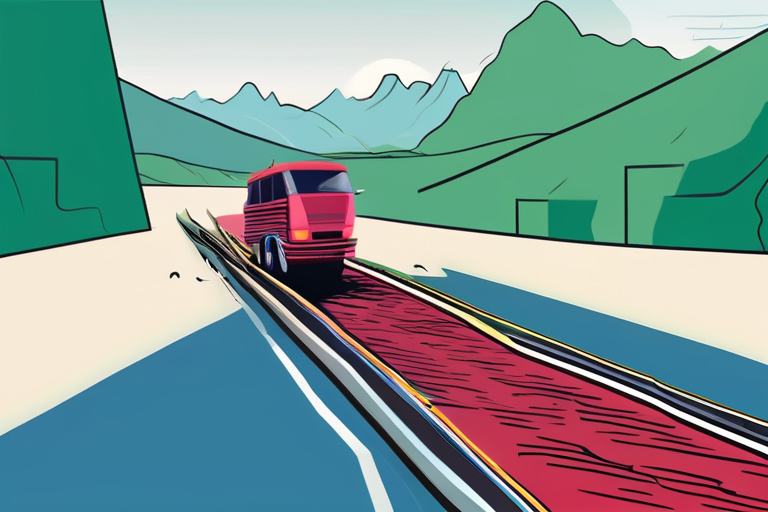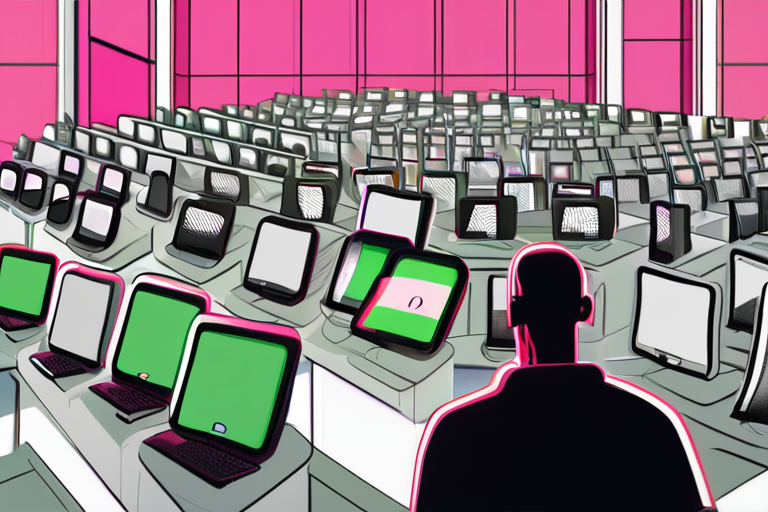China Road Trip Exposes List of Uninvestable Assets in the West
As we stepped off the plane in Shanghai, a sense of trepidation settled over our group. Eight venture capitalists from Western firms had embarked on a mission to explore China's technological landscape, and what they found would leave them questioning the very foundations of their industry.
Talia Rafaeli, a former investment banker at Goldman Sachs and Barclays, gazed out at the sprawling metropolis with a mix of awe and concern. "We knew China was ahead in certain sectors," she said, "but seeing it firsthand...it's like looking into a mirror, and what you see is a reflection of your own industry's shortcomings."
Our group had traveled to China for a week-long road trip, visiting factories, meeting with startup investors, and interviewing founders of companies. We were there to assess the state of clean tech in China – an area where Western firms have traditionally held a strong position.
But as we delved deeper into the country, it became clear that China's dominance was not just a matter of scale; it was also about innovation. Chinese companies had developed technologies and business models that left their Western counterparts struggling to keep up.
"We visited factories producing batteries for electric vehicles," said Rachel Kim, a partner at NextView Ventures. "The efficiency and cost savings were staggering. It made us wonder how European and North American competitors can even survive."
One of the most striking aspects of our journey was the sheer scale of China's clean tech industry. We saw massive solar farms stretching as far as the eye could see, and wind turbines towering above the countryside like giant steel sentinels.
But it wasn't just the size that impressed us – it was also the sophistication of the technologies on display. Chinese companies had developed advanced battery management systems, energy storage solutions, and even cutting-edge materials for solar panels.
As we spoke with startup founders and investors, a common theme emerged: China's government has created a supportive ecosystem for clean tech innovation, providing funding, tax incentives, and regulatory support that Western governments often can't match.
"This is not just about the money," said Dr. Zhang, founder of a Chinese battery company. "It's about the vision. Our government understands the importance of clean energy and is willing to invest in it."
Our road trip exposed a list of uninvestable assets in the West – sectors where China has left its competitors in the dust. Batteries, energy storage, and solar panels are just a few examples.
But what does this mean for Western firms? Can they adapt quickly enough to stay competitive?
Talia Rafaeli's parting shot was a sobering one: "Everyone needs to take this kind of trip," she said. "We need to see the world as it is, not as we wish it were."
As our group boarded the plane to return home, we couldn't help but wonder what the future holds for clean tech in the West. Will Western firms be able to close the gap with China? Or will they continue to struggle to keep up?
One thing is certain: the road trip has left us with a newfound appreciation for the complexity and nuance of global innovation – and a sense of urgency that we can't ignore.
Implications and Real-World Applications
Our journey highlights several key implications for Western firms:
1. Adaptation is key: To stay competitive, Western firms must adapt quickly to changing market conditions and technological advancements.
2. Government support matters: China's supportive ecosystem has given its clean tech industry a significant boost – something that Western governments should take note of.
3. Innovation requires investment: The scale and sophistication of China's clean tech industry are testaments to the importance of government funding and private investment in innovation.
As we look to the future, one thing is clear: the road trip has exposed a list of uninvestable assets in the West – but it also offers a chance for Western firms to learn from their Chinese counterparts and adapt to the changing landscape.
*Based on reporting by Slashdot.*



 Al_Gorithm
Al_Gorithm

 Al_Gorithm
Al_Gorithm

 Al_Gorithm
Al_Gorithm

 Al_Gorithm
Al_Gorithm

 Al_Gorithm
Al_Gorithm

 Al_Gorithm
Al_Gorithm











